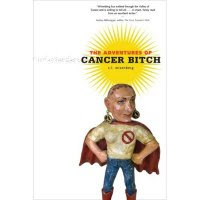
The New York Times today focuses on the difference between Stage 4 and other breast cancers, under an unfortunate headline: "A Pink-Ribbon Race, Years Long." Note to all: Editors, not reporters write the headlines.
The lead is about a woman with metastasis who went to a support group meeting and didn't have the heart to tell the rest of the women, who had stages 1-3, about herself. I was what scared them, the woman, Suzanne Hebert, said.
Let's look at the numbers: some 40,000 people in the US die of breast cancer a year. About a quarter of us who are first diagnosed with early-stage breast cancer end up with metastasis. About 150,000 are living with Stage 4.
The story quotes Dr. Eric P. Winer, director of the breast oncology center at the Dana-Farber Cancer Institute in Boston: All too often, when people think about breast cancer, they think about it as a problem, it’s solved, and you lead a long and normal life.
There was CJ, who was married to my old friend A. She was diagnosed in 2001, six years before I was, with about the same stage. She had a mastectomy, no need for chemo, her doctors said, and the family traveled and she continued working in an underfunded public school library on the East Coast, coaching the Reading Olympics team. Five years later the cancer came back. When I saw her a few years ago, she was getting treatment for cancer that had moved to her spine and brain. In spring 2009, she was losing her sight but still took the Reading Olympics kids to a competition. I didn't see her on a visit around then; I saw A when he drove me to the airport. One weekend in May 2009 she accused him of not turning on the lights. She went to school on Monday and realized that she really could not see and she quit. She died at home in August 2009.
I went to a funeral yesterday of an adult student who died suddenly at 46. She was an accomplished actor, playwright and teacher, and was in our MFA program to learn more about nonfiction writing. Last week she went home after our evening class, and she and her husband had some wine and were watching some trashy TV to relax. He got up to get more wine, and when he came back, his wife wasn't breathing. Her heart stopped before the paramedics got there. A lingering illness, he said, that would have been preferable. I think both are bad, I said. My friend S, who was close to the couple, said that at least with a lingering illness you can say goodbye, you can ask for advice. I don't know what A would say about that. Both ways have their down sides. I've long been against Death, but Death doesn't seem to care.
***
Image above is Pandora [Jane Morris] by Rossetti, which doesn't really fit, except in mood








